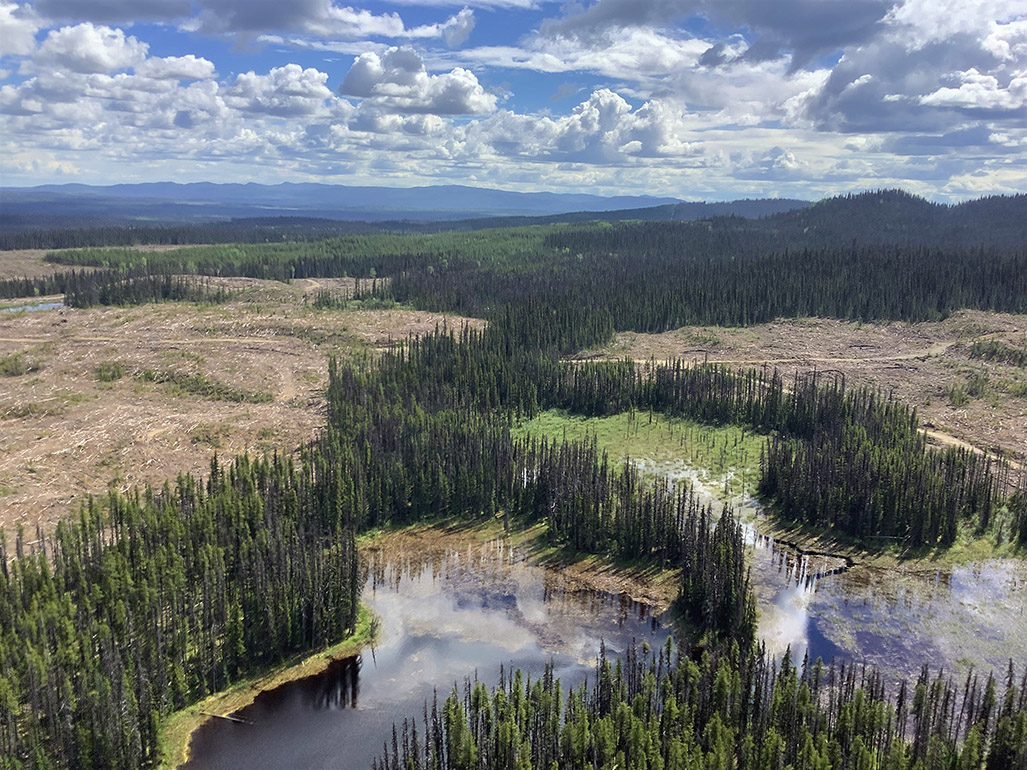
Audit of BCTS operations in Fort St. James area finds issues
FORT ST. JAMES – An audit of the BC Timber Sales Program (BCTS) and timber sale licensees in the Fort St James field unit portion of the BCTS Stuart-Nechako Business Area found significant issues with bridge documentation, as well as unsound practices related to terrain stability assessments and soil disturbance.
The Forest Practices Board (FPB) conducted the full-scope compliance audit of all BCTS and timber sale licence (TSL) holders’ forestry activities between June 1, 2021, and June 24, 2022.
The audit found that one TSL holder had installed three bridges on fish streams without preparing and retaining all the required documentation.
“The Forest Planning and Practices Regulation is specific about the documentation required for bridge construction. This is to ensure bridges are installed soundly and streams adequately protected,” said Rick Monchak, an FPB board member. “In this case, the licensee did not provide the legally required documents, and as the bridges were removed prior to the field inspection, auditors could not determine whether they conformed to plans or were installed soundly.”
Another TSL holder was found to have not adhered to restrictions to harvest only when the ground was snow-covered or frozen to prevent soil damage. This caused avoidable rutting and soil compaction.
“Although the soil disturbance was within the limits for the cutblock as a whole, it potentially impacted soil productivity in a localized area, which is an unsound practice,” Monchak said. The audit also found that BCTS failed to identify potentially unstable terrain in its site plan. This potentially puts machine operators and fish habitats at undue risk, though it was noted that no safety incidents or fish habitat impacts had occurred at the time of the audit.
The audit found no concerns with silviculture practices and concluded that road construction, maintenance and deactivation were generally well done. Fire hazards were abated in an effective and timely manner, but fire hazard assessments were not completed on time for the majority of cutblocks sampled.
“We continue to see licensees fail to meet the fire-hazard assessment timelines required by the wildfire regulations,” Monchak said. “It's an area requiring improvement.”
The audit area is in north-central B.C. and includes the community of Fort St. James. This area is known for its lakes and rivers, which are highly valued for tourism, recreation and provincially significant salmon runs. It falls within the territories of the Binche Whut'en, Halfway River First Nation, Lake Babine Nation, Lheidli-T'enneh Nation, McLeod Lake Indian Band, Nadleh Whut'en Band, Nak'azdli Whut'en, Stellat'en First Nation, Takla Nation, Tl'azt'en Nation, West Moberly First Nations, and the Yekooche First Nation.
The Forest Practices Board is B.C.’s independent watchdog for sound forest and range practices, reporting its findings and recommendations directly to the public and government. The board audits forest and range practices on public lands and the appropriateness of government enforcement. A sample of licence holders are audited each year using a licence-selection process based on a modified random sample, not on past performance or public complaints. The board can also make recommendations for improvement to practices and legislation.
Contact:
Shannon West, Communications
Forest Practices Board
shannon.west@bcfpb.ca
Phone: 250 213-4735 / 1 800 994-5899
